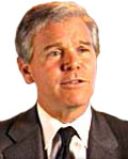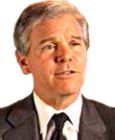Bipolar Disorder
Thoughts About Quitting the Field Again
Kid's Bipolar BS Makes Me Depressed
Posted May 29, 2008
I only read Newsweek’s cover story from last week (May 26, 2008), “Growing Up Bipolar: Max’s World,” yesterday. The piece by Mary Carmichael relates in great detail the travails of a boy named Max who was diagnosed “bipolar” at age eighteen months by a Tufts University child psychiatrist. He is now ten and a half and by his parents’ reckoning he has been on 28 different psychiatric drugs. The article left me feeling profoundly depressed about my profession and what we are offering as help to children and their families today.
I’ve always been an outsider to child psychiatry. My path towards the mental health professions was through behavioral-developmental pediatrics and family therapy. I’ve never rejected the use of medication in children and have prescribed psychiatric drugs children for thirty years but for about the last decade and a half I’ve been quite disturbed to see how we use these drugs in children often in the absence of other effective non-drug treatments.
So I feel shock and dismay when I read of Max’s course and treatment. I read the article twice hoping to find what I was missing – some remarks on counseling for the parents to help them parent this very, very difficult child. He gets some play therapy which for these kinds of problems is generally useless. I saw somewhere rather late in the game a therapist was coaching them using Robert Greene’s The Explosive Child approach. But that is conceding that more effective discipline of Max was impossible. Not surprisingly Max’s father couldn’t get behind the bargaining/cajoling aspects of the Explosive Child. Indeed very few people outside the immediate family are likely to negotiate with an unruly boy to the extent to which this approach calls.
But Carmichael hardly raises such issues about parenting. She acknowledges the parents have a fundamental disagreement, mom is too soft for dad and dad is too hard for mom – a classic triangle with a difficult kid. The “difficult” part here is Max’s personality which from the time he was a baby was intense, persistent and overly sensitive. Except for autism and mental retardation I believe this temperament triad in combination with inadequate parenting is the basis of nearly all psychiatric diagnoses in children.
But what do we get from Carmichael – she buys into the latest pseudoscientific diagnostic mumbo-jumbo. Bipolar disorder with co-morbidity is invoked to include nearly every diagnostic category for children to describe Max’s recalcitrant behavior. And the saddest part for me is how main stream journalism has bought this message from “the industry” virtually hook, line and sinker.
I felt similar hopeless and depressed after viewing the much anticipated, “Medicated Child,” also about pediatric bipolar disorder, on PBS Frontline in February. I had worked closely with the producer – getting her interested again in children’s psychiatric medication (she had done an excellent balanced documentary on ADHD and Ritalin six years earlier). This time, however, in the name of journalistic neutrality non-drug interventions for this entity, pediatric bipolar disorder, were barely mentioned. The whole absurdity, using DSM – IV criteria for children as young as two, was not addressed. I was on the show for eight seconds (trimmed from an hour’s interview) which I feel accurately represented how far the “center” had moved from my concerns and worries about how we deal with children’s problems today.
So I read the Newsweek piece and felt again, like I did with the Frontline show, about giving up, quitting trying to make any difference in this crazy world of child mental health. I’ve been publicly raising questions about what we are doing with psychiatric drugs for a dozen years and apart from some sensible retreat from the overuse of SSRIs in children for depression, everything else has gotten worse. I had no illusions when I began speaking out that I would make any difference but I was hoping others in my profession or in the mental health world would step up and speak out also. Organizing is not my forte, so I was hoping someone else would try to create a responsible organization (Peter Breggins’s group is totally anti-medication which I feel is too extreme and doesn’t allow for the short term value of some of these medications). But it hasn’t happened. So now I’m writing this blog that probably no one will read. How long can this craziness continue without a loud public professional scream


